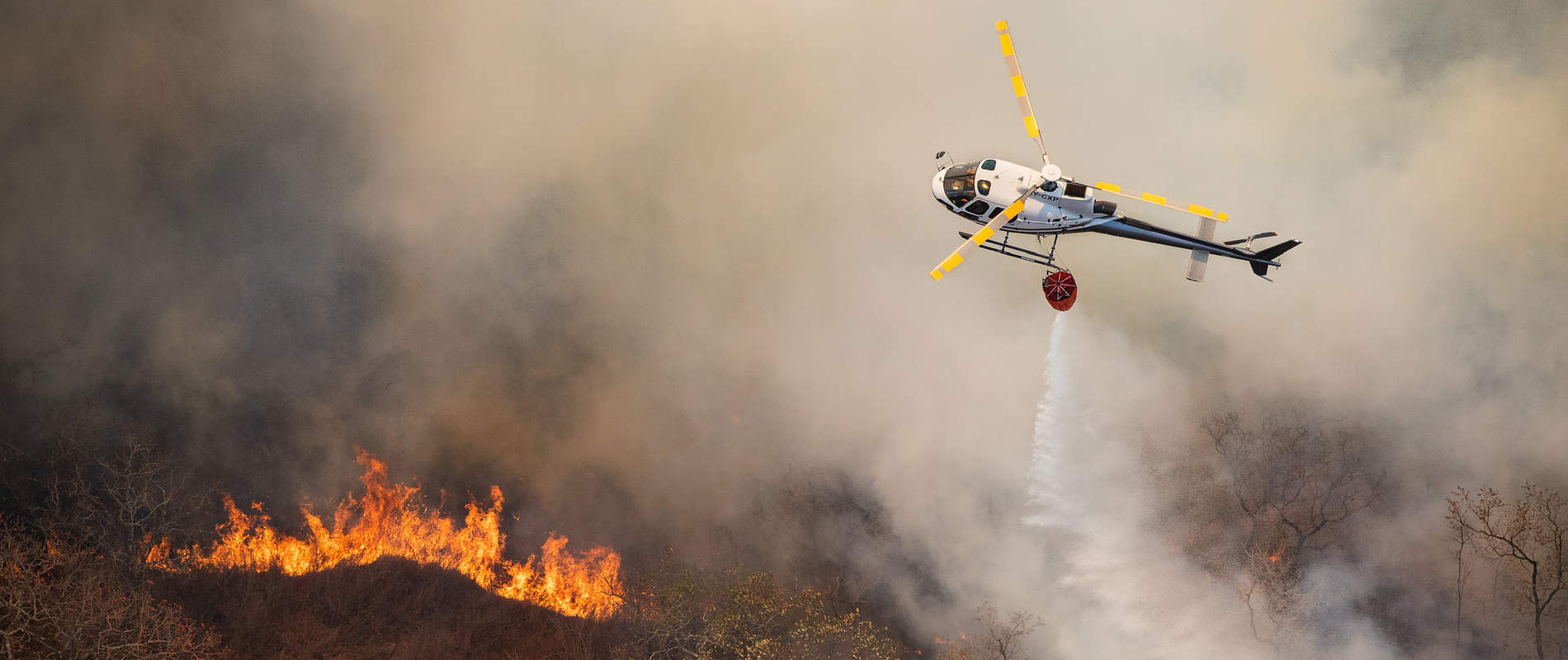Given the bone dry conditions, even the smallest fire has the potential to destroy a habitat and the creatures who call it home.

While it has not been spared from the ripple effects of the drought, the Chyulu Hills have become a sanctuary for wildlife in these dire times. Unfortunately, these verdant, rolling hills have also become a hotspot for arsonists. We have responded to a number of fires in the area, including one that burned 944 acres just last week.

Our pilots fly more than 30 hours in 3 days tackling the fire
On Tuesday 4th October, we reached the triumphant conclusion of a three-day firefighting marathon on the Chyulu Hills. Teams worked on the frontlines day and night, using fire beaters and backpack water sprayers to battle the flames.

Meanwhile, our pilots flew a combined 30 hours to tackle the fire from the air. A SWT helicopter fitted with a Bambi Bucket doused the fire with water, while the other aircraft transported ground teams and equipment to the scene. An Air Tractor, funded by the Chyulu Carbon REDD+ Project, also provided support, undertaking repeated water drops over some 20 hours of flight time. One of our bowsers was positioned at a bush airstrip, allowing the Air Tractor to quickly refill and get back to work. Our helicopter pilots filled up the Bambi Bucket from the sunken water tank atop Kenze Hill, which we installed for this very purpose.

Chyulu Carbon REDD+ funded Air Tractor dousing the flames
It took three days to get the fire under control. All told, it destroyed a total of 9,934 acres, burning through much of the tops of the Chyulus. Thankfully, the precious cloud forests were spared from the flames.

While nothing can erase its devastation, we can put things in perspective: The 2020 blaze in Tsavo West National Park destroyed 103,000 acres. Nature is resilient, and just as it healed that time, we know it will heal again.

SWT helicopter with Bambi Bucket dousing the flames
The perpetrator is usually long gone by the time a fire takes hold. Unfortunately, such was the case this time — but in last week’s blaze, we had a breakthrough. Searching for a place to drop more ground personnel, the helicopter team spotted one of the suspects. He tried to disappear, but we had a plan: As the pilot hovered overhead, our ground teams redirected for an ambush. The suspect was apprehended, arrested, and transported to KWS Tsavo West Headquarters for immediate booking at the police station. We can hope for more of these outcomes in the future.

Hundreds of people worked side by side to bring this fire under control. We were proud to fight the blaze alongside KWS, Big Life, MWCT, and members of the community, who put together numerous teams to tackle the fire. Everyone worked with incredible bravery, dedication, and determination. We would also like to extend a huge thank you to our supporters: You make it possible for us to rapidly respond to field emergencies, saving habitats and wildlife across Kenya.
